Fanna Fi Allah: A musical Odyssey
From the shores of Nova Scotia to Data Darbar, Taha Hussain Faridi (né Geoffrey Lyons) has come a long way
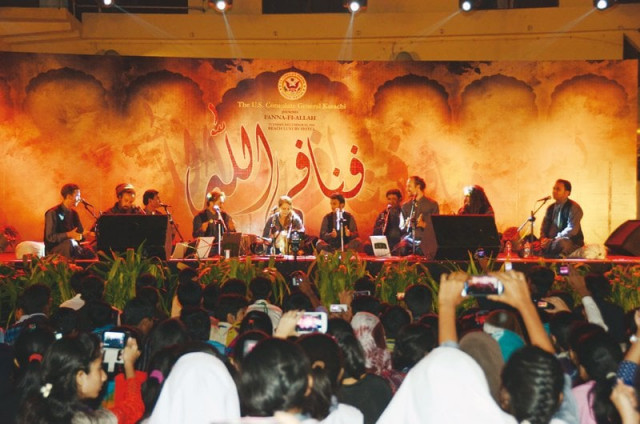
Fanna-Fi-Allah performs at the Beach Luxury Hotel, Karachi, as part of their 11th Annual Qawwali Tour of Pakistan. PHOTOS: US CONSULATE

His journey towards musical and spiritual fulfilment (aren’t they really the same, though?) has taken him across religions and continents. While still in his teens, Faridi left home and spent years in the Himalayas, practicing Hindu (sanyasi) and Muslim (dervaish) forms of asceticism, reading scripture and trying to determine his own faith. Eventually, he found a pir, Sheikh Leban (originally from Djibouti in the Horn of Africa), who inspired him to convert to Islam. Meanwhile, his study of classical music continued. He began learning different qawwalis on his harmonium, trying to transliterate the words on paper. It wasn’t until Faridi was travelling in India with his long-time friend, Aminah Chishti (née Jessica Ripper), both learning how to play various classical instruments, that the idea of a Sufi music group came about. “Aminah and I were both keen enough on the music by that point that we decided to give it a go — to get together a group of people and play this music together,” Faridi says. The band officially came into being in 2001, when they performed qawwali songs in front of a Western audience. Their performance was well-received, and Fanna-Fi-Allah hasn’t looked back since. “We soon realised that this was a life path for us, something spiritually satisfying enough to pursue full time.”

Tahir says that the band is grateful that Pakistanis are very receptive and appreciative of Fanna Fi Allah’s performances. PHOTOS: US CONSULATE
While their music is primarily targeted at a Western audience, Fanna-Fi-Allah, which consists of six people, regularly tour around the world and have performed in Pakistan and India, including at the shrines of Data Ganj Baksh in Lahore, Baba Ganj-e-Shakar in Pakpattan and Baba Bulleh Shah in Kasoor. In fact, the first time they gave hazri at a tomb was just a year after the band was formed. “We gave our first hazri in 2002, at the Dargah Sharif at Ajmer, India (at Khwaja Moinuddin Chishti’s shrine)” says Faridi. But the biggest turning point in their musical careers came when he and Chishti travelled to Pakistan and studied under Ustad Sher Ali Khan and Ustad Dildar Hussain, two learned figures of qawwali.
As Fanna-Fi-Allah travels all around the country as part of their 11th Annual Qawwali Tour of Pakistan, performing at various shrines, Faridi expresses his gratitude at how welcoming Pakistanis are about their music. “They are definitely very appreciative, very encouraging. They understand that this kind of music is completely foreign to us, and so they understand of the amount of work that we’ve put in. And they appreciate what we have accomplished, even though it’s a small part of a much larger puzzle.” Playing in front of a Pakistani audience is certainly very different from playing in the West, but Faridi maintains that people in the West also appreciate and enjoy their music, albeit in slightly different ways. “Even if they don’t understand the lyrics, they understand the reverence and devotion that lies behind our music,” he says. And if they don’t completely understand the spirituality, they can appreciate the rhythm and beat of the qawwalis. “Qawwalis are usually very ecstatic, very groovy and upbeat, and people there [in the West] really respond to this liveliness,” explains Faridi.

Despite some legendary woman qawwals — Abida Parveen and Sanam Marvi come to mind — Sufi music is mostly dominated by men. Aminah and Fanna-Fi-Allah is trying to buck the trend. Chishti, whose devotion to classical music began twelve years ago when she was given a Nusrat Fateh Ali Khan music cassette, says that all the great classical musicians that she learnt from were very supportive and eager to put her in the spotlight. “My teacher Ustad Dildar Hussain always said to me, ‘You’re not a woman or a man, you’re an artist,’ and to be an artist is about representing something beyond yourself,” she says. “So it kind of makes sense that I’m a woman doing this or we’re white, because we’re representing something that is beyond ourselves.”

Chishti, who is the group’s tabla player, has also made history by becoming the first woman in more than a hundred years to be allowed to perform in shrines across Pakistan. She says that the first time she got to perform at a shrine was sort of a miracle. “I wasn’t expecting to play at all. We were in Pakpattan, and Faridi [and the rest of the group] was scheduled to perform at Baba Ganj-e-Shakkar when the wife of the gadi nasheen asked if I would like to participate as well,” she says. “There was so much love from the audience, especially from the women. As soon as I stopped playing, they showered me with hugs and shawls.” When asked about the challenges a woman who is interested in classical music might face, Chishti says it’s basically down to the lack of opportunities for women, especially in Pakistan.

While their music is primarily targeted at a Western audience, Fanna-Fi-Allah regularly tour around the world, including India and Pakistan. PHOTOS: US CONSULATE
“In India, there are so many opportunities for everyone to learn this skill, whether you’re a woman or you’re not from India. Whoever you are, you’re allowed to have more of a choice. In Pakistan there isn’t as much of a choice.” But at the same time, Chishti is quick to point out that there are excellent teachers of classical music in Pakistan. “There is this richness of ustads, of these masterful musicians who still hold this legacy in the field. Yet, where should they pass it on to? I feel there is a bit of a disconnect between this great generation of musicians and the next generation in terms of passing down this great art.”

Chishti explains that there is a need for spirituality and tradition that isn’t being fulfilled in the West, which is why so many Westerners are looking to the East. “I think the West sort of has too much freedom, to the point where we don’t hold on to tradition anymore,” she says. “That’s why you see so many people coming here to connect with traditional ways of living, whether it is through yoga or music or whatever.”
Nudrat Kamal is a subeditor on The Express Tribune magazine desk. She tweets @Nudratkamal
Published in The Express Tribune, Sunday Magazine, January 11th, 2015.


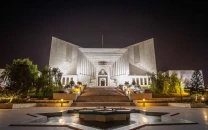
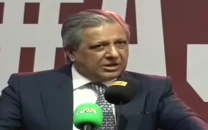

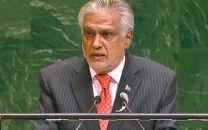
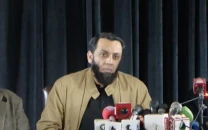












COMMENTS
Comments are moderated and generally will be posted if they are on-topic and not abusive.
For more information, please see our Comments FAQ